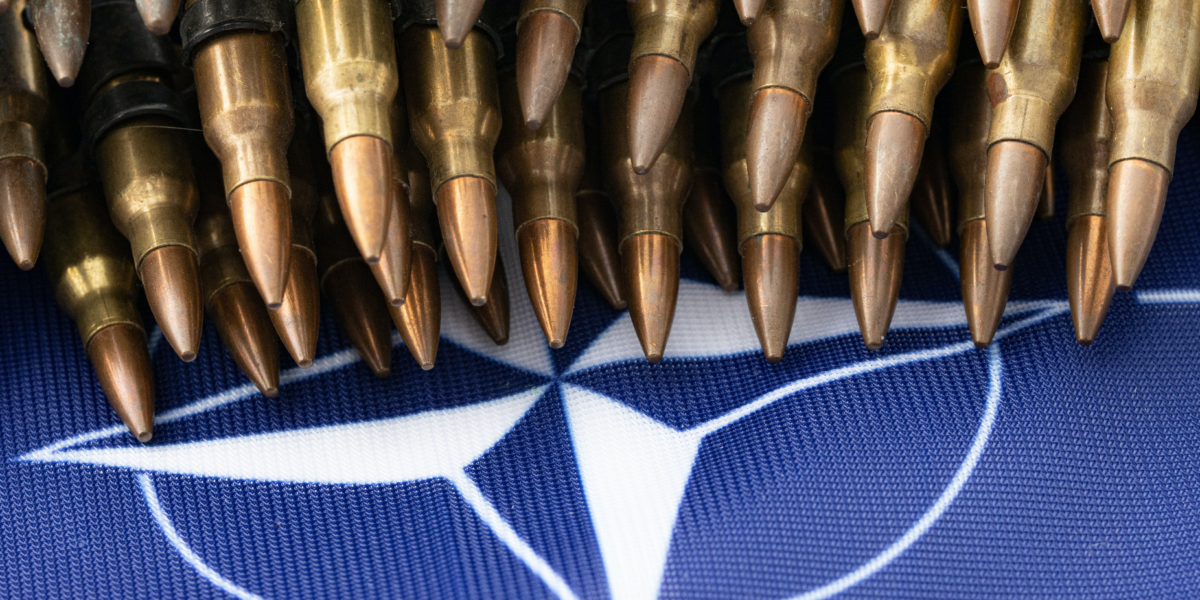Despite global outrage against the recently announced U.S. plan to donate cluster munitions to Ukraine, the Trudeau government’s opposition has been muted. The federal response reflects Canada’s hawkish position on the war, as well as ambivalence towards the cluster convention and arms control initiatives.
On Friday, the Biden administration announced their new military assistance to Ukraine will include cluster munitions. More than 120 countries have banned these munitions. Even many within Biden’s Democratic party and NATO have criticized the move, and for good reason. These horrific weapons often leave unexploded bomblets that later wreak havoc on unintended targets, particularly children. Some 20,000 civilians have been killed since the U.S. stopped dropping these types of bombs in Laos half a century ago.
On Sunday, Politico asked Canadian Defense Minister Anita Anand for her reaction to the cluster munitions announcement. “This is a war where Canada is sending other kinds of weapons to Ukraine but has signed a convention opposing the use of cluster munitions,” she responded.
“The suffering will not end until Putin lays down his weapons and gets out of Ukraine. Canada is focused on our obligations under international treaties and conventions, as well as providing Ukraine with the military equipment that it needs to fight and win this war. That’s my focus. We don’t support the use of cluster munitions, which Russia in particular has used heavily.”
Asked about the matter the next day, Prime Minister Justin Trudeau gave a similar reply, refusing to directly criticize Washington. But with pushback mounting, Foreign Affairs Minister Melanie Joly was clearer in her criticism of the U.S. when asked about it Tuesday.
Russian forces have used cluster bombs in Ukraine. So have Ukrainian forces. In fact, the Ukrainian military has been using cluster bombs against the population in the Donbass shortly after the Canadian-backed ouster of elected president Viktor Yanukovich in February 2014.
Human Rights Watch documented some of the carnage caused by cluster munitions in Donetsk City and the surrounding area in October 2014. They found the Ukrainian military killed an employee of the International Committee of the Red Cross and at least five others with cluster munitions. Dozens more were injured, with the U.S.-based rights group reporting the real casualty figure was likely far higher.
READ MORE: Trudeau’s NATO announcement in Latvia cements anti-peace doctrine
The Liberals’ reaction to the U.S. cluster bombs shipments partly reflects Canada’s ambivalence towards the Convention on Cluster Munitions. Canada took seven years to heed the convention, with eighty-nine states pledging to eliminate the deadly weapons before Ottawa.
More troubling, Canadian legislation allows the Canadian Forces to participate in joint military operations with countries that have refused to sign the convention (notably the U.S.). Director of the Cluster Munition Coalition, Laura Cheeseman said, “Canada cannot claim to have banned cluster bombs when it proposes to allow its military to help others use the weapons.” The resistance to commit persists, as Liberals rejected an NDP motion three months ago to strengthen Canadian compliance with the convention.
More broadly, due to the military’s ties with the U.S., NATO and arms industry influence, Ottawa has opposed or been ambivalent towards arms control efforts. With NATO a nuclear arms club, Canada has opposed every stage of developing and implementing the Treaty on the Prohibition of Nuclear Weapons.
Since 2007, Canada has consistently abstained on a series of UN resolutions concerning depleted uranium (DU) munitions. Backed by the vast majority of General Assembly members, the resolutions don’t even call for the abolition of DU, but only for transparency in their use to enable clean up (the US and Britain have sent Ukraine armour piercing shells containing DU).
Canadian diplomats instead have recommended a minimalist UN Arms Trade Treaty (ATT), designed to limit weapons from entering conflict zones and hopefully preventing their use by human rights violators. Then Ottawa waited until more than one hundred countries had acceded to the ATT before doing so. Canada’s appropriating legislation to “accede” to the treaty is highly flawed, with Canadian military exports to the US exempt from licensing and reporting requirements.
Ottawa has also allowed Canadian companies to flout UN arms embargoes. Southern Ontario-based Streit Group has recently exported armoured vehicles to Sudan, South Sudan and Libya in direct violation of UN sanctions. Waterloo-based Aeryon Labs supplied Libyan rebels fighting Moammar Gadhafi’s government with a three-pound, backpack-sized Unmanned Aerial Vehicle in contravention of UN resolutions in 1970 and 1973.
Notwithstanding the media framing, Canada is far from an arms control leader.
Ottawa’s muted opposition to the U.S. delivery of cluster munition also reflects its commitment to the NATO proxy war. The U.S. is sending these devastating bombs because, after a year and a half of brutal fighting, Ukrainian forces are running low on artillery shells.
After helping to provoke the conflict by pushing NATO expansion, supporting the ouster of Yanukovich and undermining the Minsk II peace accord, Ottawa has sought to prolong the fight to weaken Russia. Additionally, Canada has ignored or criticized recent initiatives put forward by Brazil, China and the African Union to explore a truce and peace negotiations.
Recently, Trudeau announced another half a billion dollars in assistance to Ukraine, on top of more than $8 billion already delivered. Over the past 18 months Canada has given $2 billion in arms, provided intelligence assistance, promoted former Canadian soldiers fighting, trained Ukrainian forces and dispatched special forces. The Canadian government recently committed an additional $2.6 billion over three years to ramp up its military presence in Latvia to 2,200 personnel, right on Russia’s border.
Ottawa has staked a great deal on this battle with Russia. But as Ukraine’s counteroffensive seems to be floundering, it’s unlikely Ukraine will regain much of its lost territory without incredible death and destruction. Using more cluster bombs will only increase the horrors.



